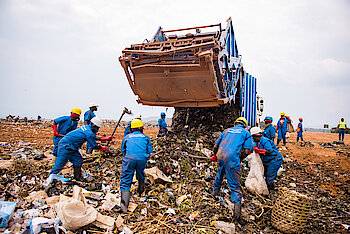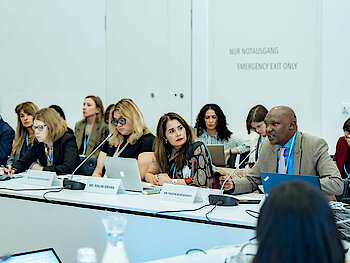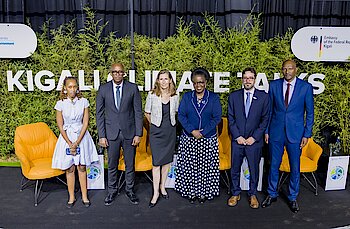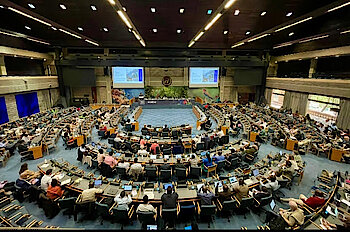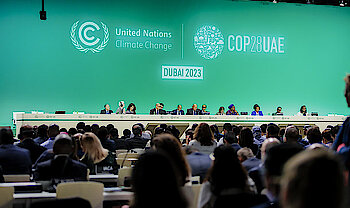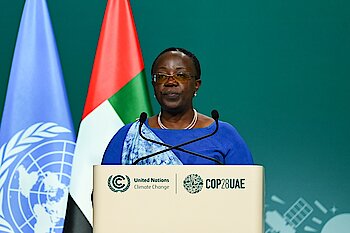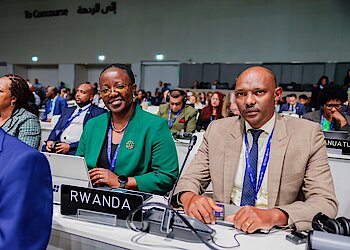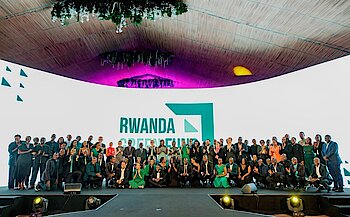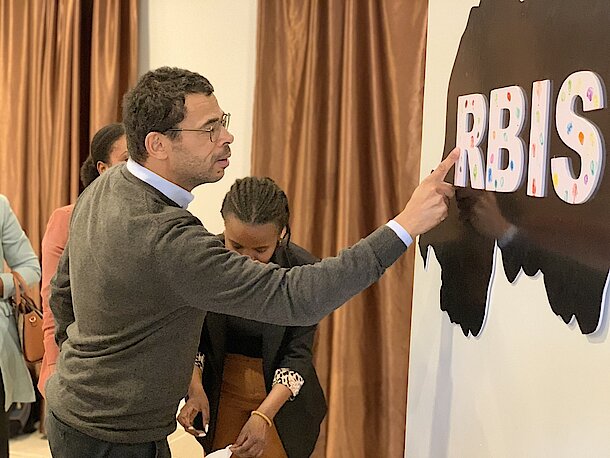
The Rwanda Biodiversity Information System to Drive Climate Change Adaptation and Conservation was launched
The Center of Excellence in Biodiversity and Natural Resource Management at the University of Rwanda has launched the Rwanda Biodiversity Information System (RBIS), a ground-breaking online portal that provides access to biodiversity data for monitoring, decision-making, reporting, research, planning, and conservation efforts in Rwanda.
The Biodiversity Information System is a one-stop-shop for all available biodiversity data and spatial layers (a type of data layer used in geographic information systems that enables visualization of information) related to climate, geology, species distributions and conservation status, ecosystems, land use and land cover that has been sourced from local and international data providers.
"The RBIS is a crucial tool for making data accessible to decision-makers and researchers who need it most. This information will help us better understand and manage our natural resources and protect Rwanda’s rich biodiversity," said Prof. Beth Kaplin, Director of the Center of Excellence in Biodiversity and Natural Resource Management.
The Rwanda Biodiversity Information System or RBIS allows users to access digitised, cleaned, and standardised biodiversity, physico-chemical and meteorological data and is expected to contribute to policies, strategies, monitoring of targets, reporting, and biodiversity conservation efforts in Rwanda.
The system will also inform land use planning and early detection of environmental change through biodiversity monitoring, assess nature-based solutions and green urbanisation interventions, and provide data to support natural capital accounting and payment for ecosystem services schemes, such as carbon credits. The RBIS will help Rwanda implement strategies and policies like the new Global Biodiversity Framework and Nationally Determined Contributions by providing a platform for monitoring restoration and climate adaptation interventions using biological indicators.
Speaking at the launch event, Juliet Kabera, Director General of the Rwanda Environment Management Authority, said: "The Rwanda Biodiversity Information System will enable policymakers and practitioners to make informed decisions and develop new environmental policies based on scientific evidence. This is critical to effectively manage our natural resources and achieve our ambitious climate action and resilience goals.
" The Rwanda Biodiversity Information System is accessible at rbis.ur.ac.rw and already has more than 127,000 records from birds, fish, plants, amphibians and reptiles to Odonates, macroinvertebrates and mammals, as well as over 26 spatial layers. The system also hosts 2 the first Spatial Biodiversity Assessment for Rwanda which the Center developed under the mentorship from South Africa National Biodiversity Institute and many experts in Rwanda. This assessment includes an ecosystem types map which enables identification and prioritization of critical ecosystems in the country.
The system was developed with financial support from the JRS Biodiversity Foundation and technical assistance from South Africa National Biodiversity Institute, Freshwater Research Centre, and Kartoza - a GIS service provider.
The Center of Excellence in Biodiversity and Natural Resource Management at the University of Rwanda led the development of the RBIS and will continue to maintain and develop the system in collaboration with the Ministry of Environment and other partners. The Center created a community of practice around biodiversity data management which continuously trains students and young researchers in data management, taxonomy, and applications of biodiversity data to Spatial Biodiversity Assessments.
The Rwanda Biodiversity Information System is a significant achievement that will contribute to biodiversity conservation and sustainable development efforts in Rwanda, and helps Rwanda meet its commitments to the Convention on Biological Diversity. Its user-friendly interface and open access features make it a valuable tool for researchers, decision-makers, and other stakeholders who are working towards ensuring the protection of Rwanda's natural resources and unique biodiversity.
Topics
More posts
Rwanda to embark the development of Short-Lived Climate Pollutants Plan
Image: Nduba Landfill in Kigali City, (The landfll is known as one source of methane gas which is the greenhouse gas and the short lived pollutants);…
RWANDA’S NEGOTIATORS ARE IN BONN PUSHING FOR CLIMATE FINANCE
Rwanda’s negotiators led by Mr. Faustin Munyazikwiye – Deputy Director General of the Rwanda Environment Management Authority (REMA) – are in Bonn,…
Rwanda and Germany launch the “Kigali Climate Talks”
On 9 May 2024, Dr Jeanne d’Arc Mujawamariya, Rwanda’s Minister of Environment, and Heike Uta Dettmann, Ambassador of the Federal Republic of Germany,…
Tackling Short-Lived Climate Pollutants: Insights from CCAC2024 Conference
The Climate and Clean Air Conference 2024 (CCAC2024), took place in Nairobi, Kenya, on the sidelines of the Sixth session of the United Nations…
RWANDA WELCOMES HISTORIC COP28 DECISION TO TRANSITION AWAY FROM FOSSIL FUELS
The Government of Rwanda has welcomed the ground-breaking decision made at the 28th Conference of the Parties (COP28) to the United Nations Framework…
NATIONAL STATEMENT - COP28 UN CLIMATE CHANGE CONFERENCE
Delivered by Dr Jeanne d’Arc Mujawamariya, Minister of Environment
To begin, I express my gratitude to His Highness Sheikh Mohamed bin Zayed…
Follow the UNEP Pavilion Discussion on the Role of Industry & Finance in Supporting the Adaptation Agenda at COP28
This session, which comes at the conclusion of Industry Day is designed to offer comprehensive insights into the roles of industry and finance in…
Rwanda to call for more ambitious climate action at COP28
At this year’s UN Climate Change Conference, known as COP28, Rwanda will call for more ambitious climate action, a doubling of funding for adaptation…
Rwanda Green Fund Celebrates a Decade of Impact
The Rwanda Green Fund has marked its 10th anniversary, a remarkable milestone of transformative impact in Rwanda. Established in 2012, the Fund has…
